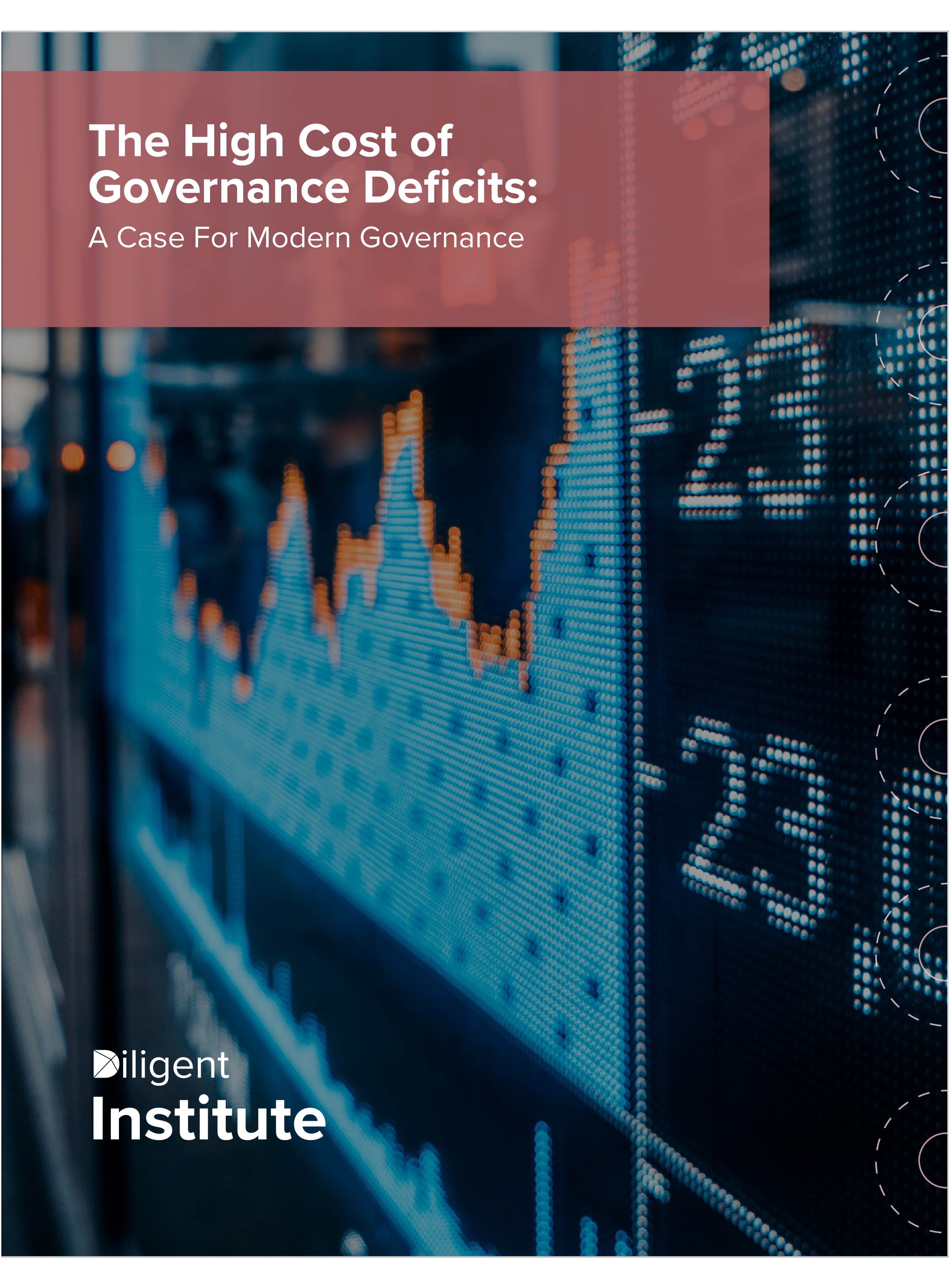A Case for Modern Governance: The High Cost of Governance Deficits
This Diligent Institute report begins to quantify the material cost of governance crises, and more importantly, the competitive advantage that comes with strong corporate governance practices.
Key findings
This report indicates the advantages companies can realize by practicing modern governance.
15%
The percentage that the top modern governance companies (top 20%) outperformed their peers by.
35%
Companies with corporate crises fueled by governance deficits underperformed their sectors by this percentage.
45%
The percentage by which companies underperformed their sectors two years after the incident occurred.
Board and governance
The cost of governance deficits
This Diligent Institute report begins to quantify the material cost of governance crises, and more importantly, the competitive advantage that comes with strong corporate governance practices.

When did these incidents occur?
The crisis needed to have occurred relatively recently in order to speak sufficiently to current best practices, but not so recently that there might be insufficient data available. The cases included all occurred sometime between 2012 and 2017.
What types of companies were analyzed?
The review was limited to large, public companies to ensure that sufficient publicly-accessible data sources were available.
What happened next?
Finally, unlike many companies that experienced crises on this scale in the past several years, the companies included needed to still be in existence, and to have not gone bankrupt.
.

Featured content
[rt_reading_time postfix=”minute read” postfix_singular=”minute read”]
Inform
State of Cyber Awareness in the Boardroom
NightDragon, Diligent and our coalition of industry leaders analyzed the leadership…
[rt_reading_time postfix=”minute read” postfix_singular=”minute read”]
Certifications
AI Ethics & Board Oversight Certification
Learn how to govern AI ethics responsibly in Diligent Institute’s AI Ethics & Board…
[rt_reading_time postfix=”minute read” postfix_singular=”minute read”]
Inform
What Directors Think 2023
Diligent Institute and Corporate Board Member surveyed 300 U.S. public company directors…
[rt_reading_time postfix=”minute read” postfix_singular=”minute read”]
Certifications
Cyber Risk & Strategy Certification
Get certified to oversee cyber risk & strategy with Diligent Institute, the leading…
Contacting Diligent Institute
Want to learn more?
Subscribe to Diligent Institute to hear more about our research, education programs and events. Contact us to answer any questions you have!
